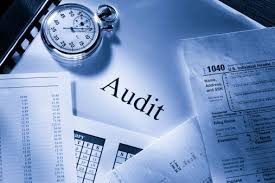Ethics is a set of rules or norms or guidelines that regulate human behavior, whether must to do or not is to be held by a group of people or professions.
Ethics is very important in the profession of auditors. An auditor’s ethics will influence audit quality standards, because an auditor has a great responsibility and service to the community/client. Clients requires the services with high quality standards from auditor. That is why the profession of auditors establishes technical standards and ethical standards that must be used as guidance by auditors in carrying out audits.
Ethical standards are needed for the audit profession because auditors have a position as confident and confront possible conflicts of importance.
The following are the basic principles of professional ethics that an auditor must applied:
1. Integrity
Auditor must be assertive and honest in all professional relationships and business relationships. Integrity also means to avow and always telling the truth. Each Auditor could’t consciously related to various reports, various statements, communications, or other information when they believe that the information is contained:
a. contains a material glitch or misleading statement;
b. statement or information given inadvertently; or
c. deletion or obscurity of information that should be disclosed, so that it will be misleading.
When Auditor realizes that he/she has been associated with such information, they must do the necessary steps so as not to be associated with that information.
2. Objectivity
Auditor does not allow deviations, conflicts of importance, or improper influence from other parties, which can reduce professional or business considerations. For the importance of the organization, auditors couldn’t do things that are contrary with participating in any activity that is disturbing their judgment and must disclose all known facts so as not to disturb the report being examined.
3. Professional Competency
Auditor must have professional knowledge and expertise at the level needed to ensure that the client or employer will receive competent professional services based on the development of practices, rules, and methods of execution the work, and act seriously and accordant with methods of execution the work and prevailing professional standards.
4. Confidentiality
Auditor must keep the confidentiality of information obtained as a result of professional relationships and business relationships with not disclose that information to third parties without the consent of the client or employer, unless there are legal duty or professional rights to disclose, and not to use that information for self-interest or third parties.
Each Auditor must keep the confidentiality of information, including in a social environment, and be aware of the possibility of unintentional disclosure, especially to business partners or members of the nuclear family or close family members. Auditor must keep the confidentiality of information that disclosed by prospective clients or employers.
5.Professional Behavior
Auditors must comply the prevailing laws and regulations and avoid any behavior that reduced trust to the profession.
In marketing and promoting themselves and their work, each auditor is forbidden to defame the profession. Each Auditor must be honest and trustworthy, and not:
a. make overrated statements about professional services that can be given, qualifications owned, or experience that been obtained; or
b. make a degrading statement or do a comparison that is not supported by evidence toward the output work of other parties.


